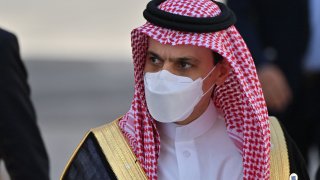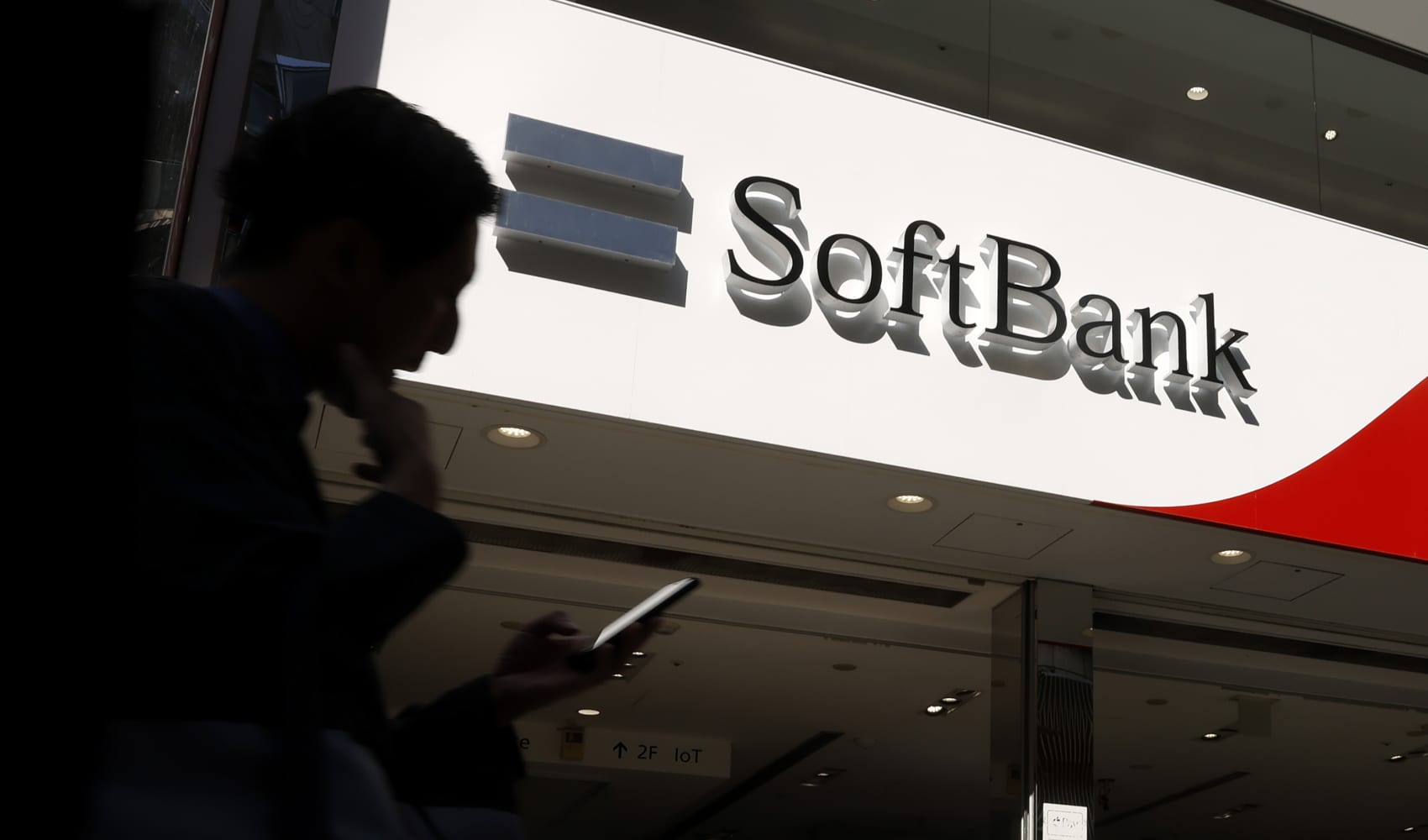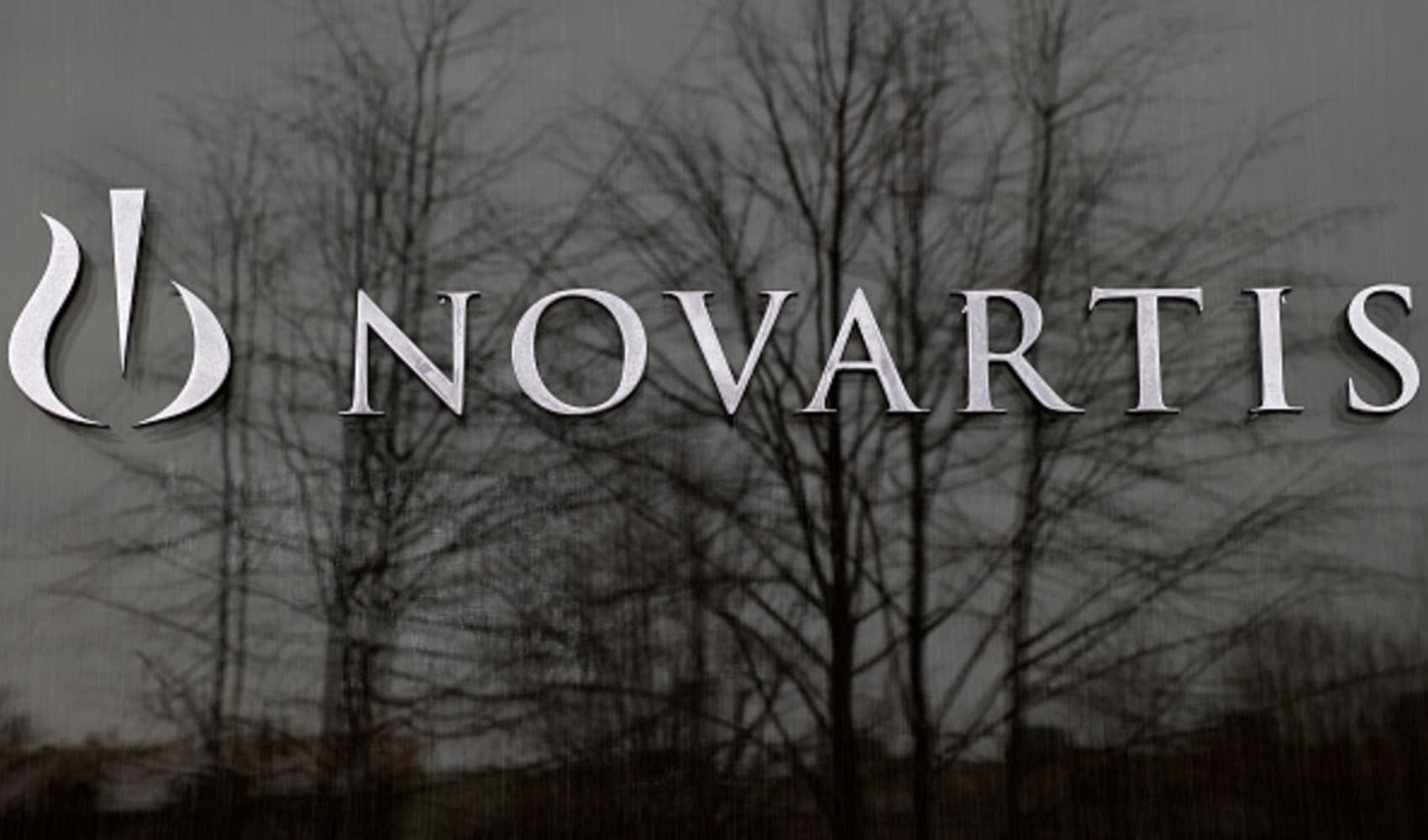
- Saudi Arabia's foreign minister has denied that the kingdom is experiencing a diplomatic crisis with Lebanon.
- He said that the country sees current engagement with Lebanon as not "productive or useful."
- The comments come after Saudi Arabia ordered Lebanon's ambassador to leave the kingdom following what it saw as "insulting" comments by a Lebanese minister.
Saudi Arabia's foreign minister has denied that the kingdom is experiencing a diplomatic crisis with Lebanon but has said the country sees any current engagement with Beirut as not "productive or useful."
The comments come after Saudi Arabia ordered Lebanon's ambassador to leave the kingdom following what it saw as "insulting" remarks by a Lebanese minister.
"I don't think I would call it a crisis," Prince Faisal bin Farhan al-Saud told CNBC's Hadley Gamble in Rome, Italy on Saturday, but said the comments by the Lebanese minister — which referred to Saudi Arabia's role in the ongoing civil war in Yemen — demonstrated the Iran-backed militant group Hezbollah was increasingly dominant in Lebanese politics.
Get DFW local news, weather forecasts and entertainment stories to your inbox. Sign up for NBC DFW newsletters.
"I think we have come to the conclusion that dealing with Lebanon and its current government is not productive and not helpful with Hezbollah's continuing dominance of the political scene, and with what we perceive as a continuing reluctance by this government and Lebanese political leaders in general to enact the necessary reforms, the necessary actions to push Lebanon in the direction of real change," Prince Faisal said.
"We have decided that I think engagement at this point is not productive or useful. And it's not really in our interest."
Lebanese Information Minister George Kordahi made remarks in an interview in which he referred to the Saudi-led military intervention in Yemen and called the war "futile." He also appeared to insinuate that Saudi Arabia and the United Arab Emirates were aggressors in the conflict.
Money Report
The ongoing civil war in Yemen, which has lasted seven years, has seen Saudi-led forces (who support the Yemeni government) fighting Iranian-backed Houthi rebels for control of the country.
Responding to the comments, Saudi Arabia ordered the Lebanese ambassador to leave within 48 hours on Friday and recalled its own ambassador from Lebanon. Bahrain, Kuwait and the UAE also took similar actions in solidarity with Saudi Arabia.
The Lebanese government has sought to calm the diplomatic crisis, reportedly saying that Kordahi's remarks (which were made before he became a minister) did not reflect its position. There has been mounting pressure on the minister to resign too. For his part, Kordahi has said he did not mean to offend Saudi Arabia or the UAE.
Prince Faisal told CNBC that the comments by the Lebanese minister were "a symptom of a reality, a reality that the political scene in Lebanon continues to be dominated by Hezbollah, a terrorist group, a group that by the way, arms and supplies and trains that Houthi militia."
"So for us, it is broader than just the comments of one minister, it is more an indication of the state that Lebanon is in."
Economic crisis
Lebanon's current economic crisis is one of the worst in modern history, according to the World Bank. Its government has for years failed to enact political and economic reforms to manage its crippling debt, clean up its banking sector and tackle entrenched corruption by political elites.
Lebanon is home to 18 different religious communities. Because of this, its unique but widely criticized consensus government rests on a power-sharing structure whereby the prime minister, president and speaker of the house must come from the country's three largest religious groups: Sunni, Maronite Christian and Shiite, respectively.
This setup, Lebanese citizens and regional experts say, facilitates and often encourages graft, corruption, and interference from foreign powers via these various sectarian groups.
Iran
The war in Yemen is often seen as a proxy conflict between Saudi Arabia and Iran, who are bitter power rivals in the Middle East.
The Sunni and Shiite Muslim powers have backed opposing sides in regional conflicts and political disputes in Syria, Lebanon and elsewhere for years. They cut diplomatic ties in 2016.
But Saudi Arabia and Iran began talks in April to try to resolve long-standing issues.
Riyadh confirmed earlier this month it had held direct talks with Iran's new government in September, shortly after the election of hardline and anti-Western cleric Ebrahim Raisi.
Prince Faisal has since said talks between Riyadh and Tehran were "cordial," according to The Financial Times, describing negotiations as "exploratory."
Speaking to CNBC on Saturday, Prince Faisal confirmed that talks were continuing but that no solid progress had been made so far.
"We are talking. We in the kingdom are committed to finding a path towards forging understandings with Iran that address a regional security instability in a way that we can all focus on building a prosperous future for our people. So far, these talks have been exploratory in nature. We've had four rounds [of discussions] so far. We may have another round. We're working that out. We haven't really reached any conclusive progress. But they have been, I would say, positive enough to allow for further discussion beyond, but nothing concrete as of yet.'
His comments in Rome reflect the latest sign that the frosty relationship between the two regional rivals could be beginning to thaw. Iranian Foreign Minister Hossein Amirabdollahian told a news conference on Oct. 7 that talks on how to improve diplomatic ties had gone a "good distance." And last week Iran resumed exports to Saudi Arabia for the first time since the rivals stopped bilateral trade last year.
Last week it was announced that global powers would resume talks with Iran aiming to revive the 2015 nuclear deal that lifted sanctions on the Islamic Republic in exchange for curbs to its nuclear program.
Saudi Arabia's Prince Faisal reflected concerns among western nations that Iran must keep to its commitments in the Joint Comprehensive Plan of Action (or JCPOA, essentially, the 2015 nuclear deal) regarding the curbing of nuclear activities in the country and allowing inspections of its activities by the International Atomic Energy Agency.
"For us, it's critical that we address the continuing nuclear activities in Iran, we see Iran continuing to reach its obligations, not just to the JCPOA, but even to the Non Proliferation Treaty [a treaty aimed at limiting the spread of nuclear weapons]. And I think, also critical is that you address the issue of non access for the IAEA. And those are real threats to regional security and regional stability," he said.
Prince Faisal was speaking on the sidelines of the G-20 summit in Rome. The two-day weekend meeting sees political leaders from the world's 20 largest economies hold their first face-to-face meeting in two years.
—CNBC's Natasha Turak contributed to this article.






